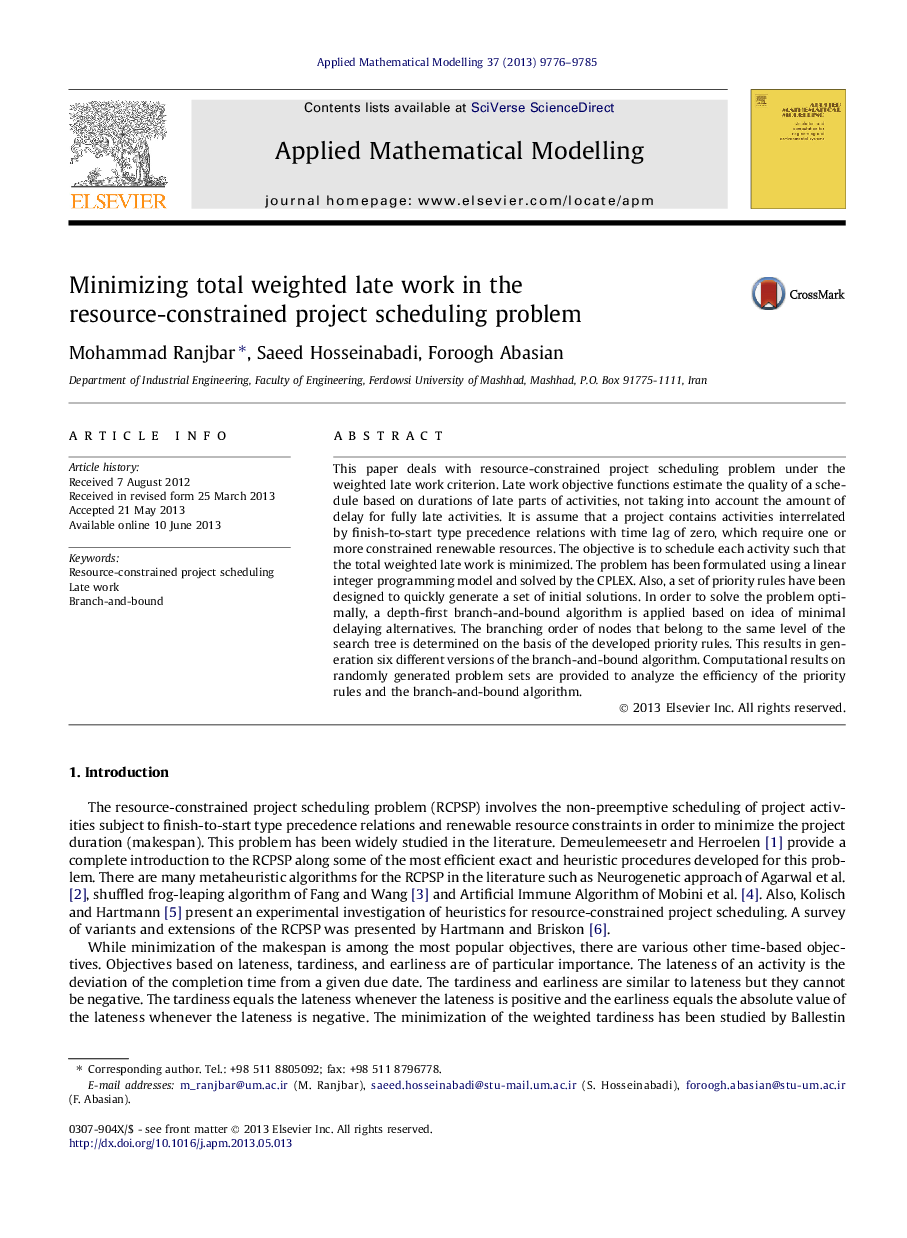| Article ID | Journal | Published Year | Pages | File Type |
|---|---|---|---|---|
| 1704307 | Applied Mathematical Modelling | 2013 | 10 Pages |
This paper deals with resource-constrained project scheduling problem under the weighted late work criterion. Late work objective functions estimate the quality of a schedule based on durations of late parts of activities, not taking into account the amount of delay for fully late activities. It is assume that a project contains activities interrelated by finish-to-start type precedence relations with time lag of zero, which require one or more constrained renewable resources. The objective is to schedule each activity such that the total weighted late work is minimized. The problem has been formulated using a linear integer programming model and solved by the CPLEX. Also, a set of priority rules have been designed to quickly generate a set of initial solutions. In order to solve the problem optimally, a depth-first branch-and-bound algorithm is applied based on idea of minimal delaying alternatives. The branching order of nodes that belong to the same level of the search tree is determined on the basis of the developed priority rules. This results in generation six different versions of the branch-and-bound algorithm. Computational results on randomly generated problem sets are provided to analyze the efficiency of the priority rules and the branch-and-bound algorithm.
